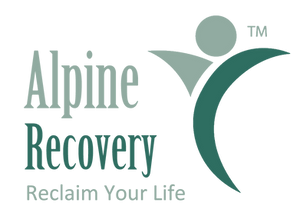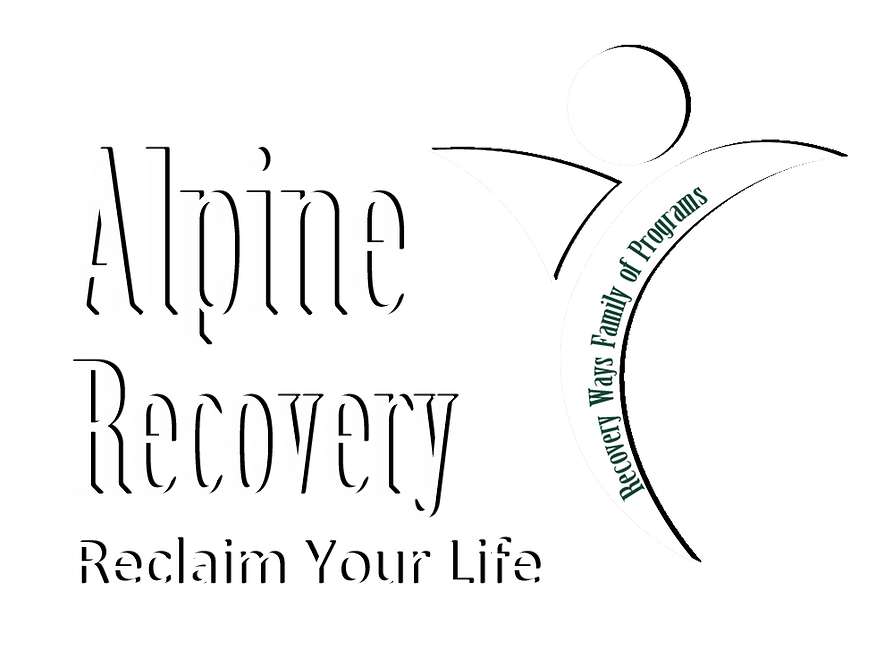Drug And Alcohol Treatment Centers In Everett Wa
Table of Contents
Drug and Alcohol Treatment Options in Everett, WA
In Snohomish County, including Everett, WA, the opioid crisis and alcohol misuse have driven a surge in demand for effective drug and alcohol treatment centers everett wa. Local data shows over 20% of adults face substance use disorders, with many seeking accessible outpatient options for recovery. These challenges underscore the need for trusted drug rehab in Everett, WA, that addresses both immediate and long-term needs.
Alpine Recovery, a Joint Commission-accredited clinic in nearby Arlington at 16404 Smokey Point Boulevard, Suite 109, Arlington, WA 98223, serves the Puget Sound region with evidence-based programs. Specializing in outpatient alcohol treatment in Everett, WA, we offer assessments, partial hospitalization, intensive outpatient services, and veteran-focused care. Our individualized plans and in-house insurance verification, including Medicaid coverage for up to 90% of outpatient costs per Washington rehabs data, ensure accessibility through phone (360-658-1388), SMS, or online forms during hours Monday-Thursday 9am-6pm and Friday 9am-12pm.
This guide explores the Everett recovery landscape, our services, key considerations, and steps to start. Contact us today for hope-filled support in substance abuse services near Everett.
Addiction Recovery Landscape in Everett, WA
Everett, WA, faces significant challenges from the opioid crisis, with Snohomish County reporting over 300 overdose deaths annually, underscoring the need for accessible recovery options. The city serves a diverse population of approximately 110,000 residents, many seeking effective drug and alcohol treatment centers in Everett, WA, to address substance use disorders. Local facilities play a crucial role in providing support for those on their recovery journeys, offering hope and structured pathways to sobriety.
Key providers in the area include Alpine Recovery, Pioneer Human Services, and Evergreen Recovery Centers, each offering distinct services tailored to varying needs. Alpine Recovery specializes in outpatient programs, including intensive outpatient programs (IOP) and partial hospitalization, ideal for working adults pursuing drug rehab in Everett, WA. In contrast, Pioneer Human Services emphasizes inpatient care and detox, as noted in their program scopes for comprehensive withdrawal management. Evergreen Recovery Centers provides a mix of outpatient, detox, and residential options, with evidence-based approaches yielding high success rates in Snohomish County. For those exploring drug treatment centers in everett wa, these options highlight the flexibility of outpatient alcohol treatment in Everett, WA, versus more intensive inpatient settings, often guided by community referrals or legal pathways.
Comparing these centers helps individuals evaluate the best fit based on program types, credentials, and accessibility, ensuring choices align with personal circumstances and insurance coverage.
| Provider | Program Types | Accreditation | Insurance Acceptance | Proximity to Everett |
|---|---|---|---|---|
| Alpine Recovery | Outpatient, IOP, Partial Hospitalization, Assessments | Joint Commission Accredited | Most Insurances, In-House Verification, Medicaid | 10-min drive from Everett (Arlington clinic) |
| Pioneer Human Services | Inpatient, Outpatient, Detox | State Licensed | Medicaid, Private Insurances | In Everett |
| Evergreen Recovery Centers | Outpatient, Detox, Residential | CARF Accredited | Private Pay, Some Insurances | Nearby in Snohomish County |
Alpine Recovery stands out with its Joint Commission accreditation and in-house benefits verification, simplifying access for veterans and employer referrals in the Puget Sound region. This outpatient focus supports local substance abuse facilities near Everett by allowing clients to maintain daily responsibilities while receiving evidence-based care.
Community supports like veteran resources and referral pathways from legal professionals enhance recovery options, fostering a compassionate ecosystem for sustained healing in Everett and surrounding areas.
Outpatient Programs for Addiction in Everett, WA
For individuals seeking drug and alcohol treatment centers in Everett, WA, Alpine Recovery offers flexible outpatient programs tailored to support recovery while maintaining daily responsibilities. Located in nearby Arlington, the clinic provides comprehensive services for adults facing substance use challenges, including coordinated care that emphasizes personalized treatment paths. These programs address a range of needs, from initial assessments to ongoing support, ensuring accessible options for local residents.
Alpine Recovery begins with a thorough assessment process to create individualized plans based on each person’s substance use history and goals. The intensive outpatient program everett wa stands out, structured around 9-15 hours per week of group and individual sessions, often including cognitive behavioral therapy and relapse prevention strategies. For those needing more intensive support, partial hospitalization delivers structured daily programming without overnight stays. Compared to other local providers like Evergreen Recovery Centers, Alpine’s in-house benefits verification streamlines access, reducing wait times for Everett clients.
-
Outpatient Programs: Flexible scheduling for weekly therapy sessions focused on skill-building and peer support, ideal for drug rehab in Everett, WA.
-
Intensive Outpatient (IOP) Services near Everett: Higher commitment with evening groups to accommodate work schedules.
-
Partial Hospitalization: Full-day support for stabilizing acute needs, transitioning to less intensive care.
Eligibility targets adults 18 and older, with veteran-specific resources available through partnerships. Medication-assisted treatment integrates seamlessly for opioid or alcohol dependencies, enhancing outcomes per evidence-based protocols. Benefits include restored daily functioning and reduced relapse risks, all under The Joint Commission accreditation for quality assurance.
Accessing these outpatient alcohol treatment in Everett, WA, starts with a confidential call to 360-658-1388 for intake. The clinic accepts most major insurances, offering a quick online Verify Benefits tool to check coverage and estimate costs upfront. For local detox and recovery options, Alpine coordinates referrals to safe withdrawal management facilities, ensuring smooth transitions with medical oversight. This approach supports Everett residents by minimizing disruptions, with clinic capacity dedicated to regional referrals for prompt scheduling Monday through Friday.
Factors to Consider in Everett Treatment Choices
When exploring drug and alcohol treatment centers in Everett, WA, local residents face unique decisions influenced by costs, insurance coverage, and program accessibility. Outpatient options, like those at Alpine Recovery in nearby Arlington, offer flexible support for working professionals and families in the Puget Sound area. Understanding these factors ensures a better fit for sustainable recovery.
Treatment costs for drug rehab in Everett, WA, typically range from $5,000 to $15,000 for intensive outpatient programs (IOP), but sliding scale fees make affordable recovery options in Everett more attainable. Most major insurances are accepted, including Medicaid, with in-house verification streamlining the process. For alcohol treatment everett, alcohol treatment everett programs often cover specific plans like those from the Washington Drug Alcohol Medicaid Rehabs reference, reducing out-of-pocket expenses for qualifying locals. While free programs are limited, sliding scales address financial barriers effectively.
Key selection factors include accreditation, such as The Joint Commission standards, and staff credentials to ensure quality care with relapse prevention focus. Outpatient alcohol treatment in Everett, WA, provides pros like maintained daily routines versus inpatient cons of extended stays. Testimonials from veterans highlight employer and legal support pathways, empowering informed choices.
Local tips involve considering transportation from Everett to Arlington clinics, about 30 minutes away, and using online tools for insurance-covered programs near Everett. Prioritizing verified benefits and personalized assessments aligns treatment with individual needs for long-term success.
Initiating Recovery at Local Everett Centers
For adults seeking drug and alcohol treatment centers in Everett, WA, starting recovery at nearby facilities like Alpine Recovery offers a straightforward path to support. The process begins with simple initial contact, including a hyperlink to alcohol treatment everett wa for specialized outpatient options tailored to local needs.
-
Make Initial Contact: Reach out via phone at 360-658-1388, SMS, or the online form on alpinerecovery.com. The intake team responds promptly to discuss your situation confidentially. Unlike benchmarks at centers like North Sound Behavioral Health, Alpine Recovery streamlines this step for quicker access to drug rehab in Everett, WA. Provide basic details, and they’ll guide you through enrollment in local programs, ensuring privacy throughout.
-
Benefits Verification and Assessment: Submit insurance info for rapid verification, often faster than traditional workflows. Schedule an assessment session to evaluate needs and create a personalized plan for outpatient alcohol treatment in Everett, WA. Sessions occur at the clinic in Arlington, easily accessible from Everett via short drives or public transit, with support for emergency or routine entry.
-
Follow-Up and Enrollment: Attend planning sessions to outline your care, including referrals from employers or legal sources. Clinic hours are Monday through Thursday 9 a.m. to 6 p.m. and Friday 9 a.m. to 12 p.m. at 16404 Smokey Point Boulevard, Suite 109, Arlington, WA 98223. This structured approach emphasizes starting addiction care in Everett with measurable steps toward sustained recovery.
Your Path to Recovery in Everett, WA
Exploring drug and alcohol treatment centers in Everett, WA, reveals options like Alpine Recovery’s flexible outpatient programs, backed by Joint Commission accreditation and streamlined insurance verification tools for affordability. Our structured drug rehab in Everett, WA, and outpatient alcohol treatment in Everett, WA, promote success through evidence-based care, mirroring regional recovery outcomes with high sustained recovery support in Everett.
Ready to start? Contact Alpine Recovery at 360-658-1388 or visit 16404 Smokey Point Boulevard, Suite 109, Arlington, WA 98223 for a confidential assessment and personalized plan.
With community-based treatment locally, you can restore function, rebuild connections, and thrive in the Puget Sound community–your recovery journey begins now.


















